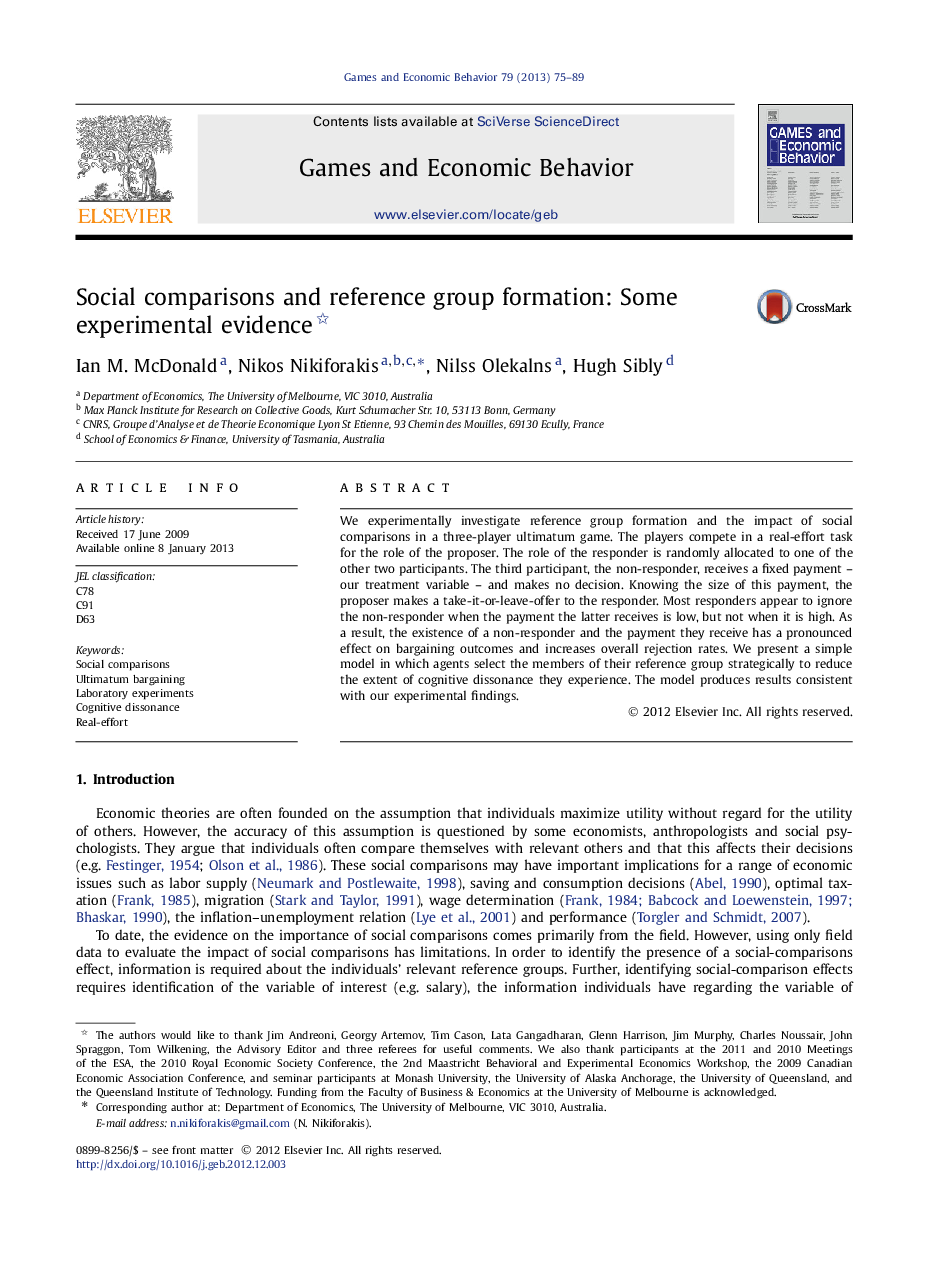| Article ID | Journal | Published Year | Pages | File Type |
|---|---|---|---|---|
| 5072068 | Games and Economic Behavior | 2013 | 15 Pages |
Abstract
We experimentally investigate reference group formation and the impact of social comparisons in a three-player ultimatum game. The players compete in a real-effort task for the role of the proposer. The role of the responder is randomly allocated to one of the other two participants. The third participant, the non-responder, receives a fixed payment - our treatment variable - and makes no decision. Knowing the size of this payment, the proposer makes a take-it-or-leave-offer to the responder. Most responders appear to ignore the non-responder when the payment the latter receives is low, but not when it is high. As a result, the existence of a non-responder and the payment they receive has a pronounced effect on bargaining outcomes and increases overall rejection rates. We present a simple model in which agents select the members of their reference group strategically to reduce the extent of cognitive dissonance they experience. The model produces results consistent with our experimental findings.
Related Topics
Social Sciences and Humanities
Economics, Econometrics and Finance
Economics and Econometrics
Authors
Ian M. McDonald, Nikos Nikiforakis, Nilss Olekalns, Hugh Sibly,
